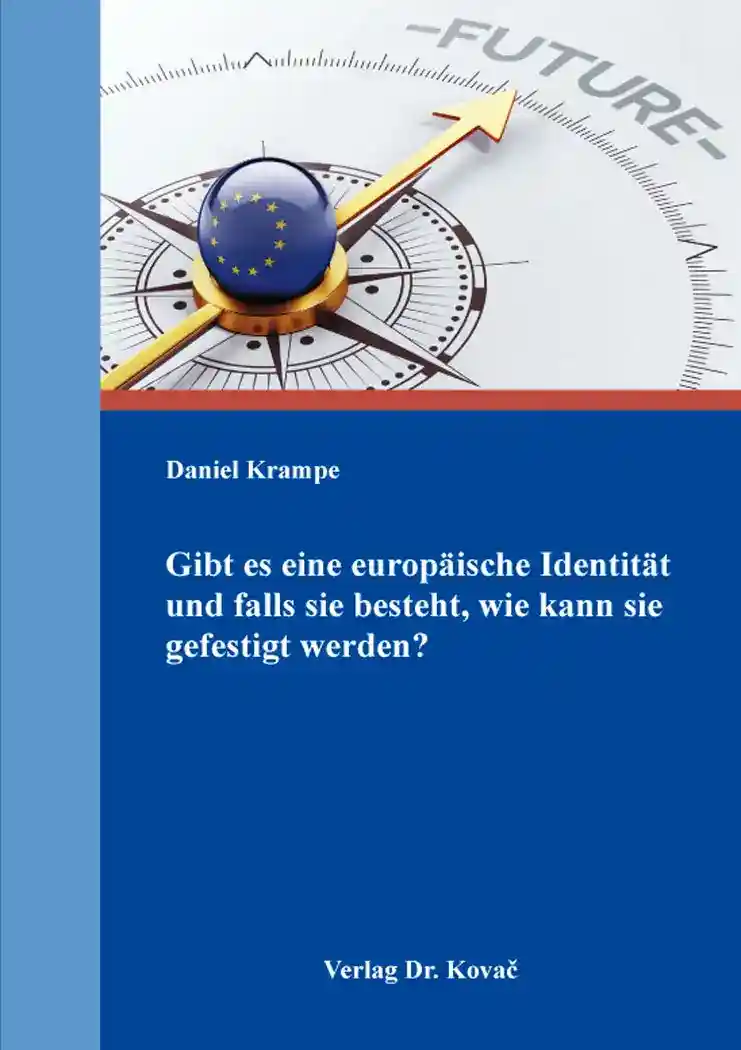Daniel KrampeGibt es eine europäische Identität und falls sie besteht, wie kann sie gefestigt werden?
Schriften zur Europapolitik, volume 22
Hamburg 2016, 94 pages
ISBN 978-3-8300-9166-0 (print) |ISBN 978-3-339-09166-6 (eBook)
Rezension
[...] Wie beurteilen die Bürgerinnen und Bürger die Mitgliedschaft ihres Landes in der Europäischen Union? Wie verbunden fühlen sie sich mit der EU? Sind nationale und europäische Identität kompatibel? Antworten auf diese Fragen gibt der Autor in einer empirischen Analyse, die auf den aktuellen Daten des Eurobarometers basiert und in ihrem Ergebnis zu neuen, teilweise sehr erstaunlichen empirischen Befunden kommt. [...]
About this book deutschenglish
The current trend of the revival of national resentment in virtually all European nation states is associated with the only diffusely developed European identity. It is not without reason that many scientists see it as the real Achilles heel of the European Union. In the context of the refugee and financial crisis, a strengthening of European identity appears to be a significant factor in order to legitimize majority and redistribution decisions on the part of its citizens.
European identity is a much discussed and complex phenomenon, which serves as a projection area for a variety of different perceptions and conditions. In his work, the author develops the point of view that a stable European identity can only emerge exclusively as a political identity. In this context, he falls back to the expertise of Peter Graf Kielmansegg, Jürgen Habermas and Furio Cerutti and discusses their positions critically keeping in mind the current state of the debate. The focus of the study is on the subject of the identification itself: the European citizen. How do the citizens judge their country’s membership in the European Union? How connected do they feel with the EU? Are national and European identity compatible? The author provides answers to these questions in an empirical analysis that is based on the current data of the Eurobarometer and his findings lead to new and partially surprising empirical results. Based on this, potential reference points are discussed, which can lead to a consolidation of a European political identity.
With his work, the author makes an important contribution to the current debate on European identity. The study is mainly characterized by a close link of concepts, theoretical approaches and empirical analyses.
About the author
Daniel Krampe is a sociologist and a graduate student of Political Science with focus on Europe Research at the Goethe-University Frankfurt am Main.
Kontaktmöglichkeit
Keywords
EUEurobarometerEurokriseEuropäische IdentitätEuropäische UnionEuropapolitikFinanzkriseFinanzmarktkriseFlüchtlingskriseFurio CeruttiJürgen HabermasKollektive IdentitätLegitimitätPeter Graf KielmannseggPolitikwissenschaftPolitische IdentitätWertegemeinschaftIhr Werk im Verlag Dr. Kovač

Möchten Sie Ihre wissenschaftliche Arbeit publizieren? Erfahren Sie mehr über unsere günstigen Konditionen und unseren Service für Autorinnen und Autoren.
